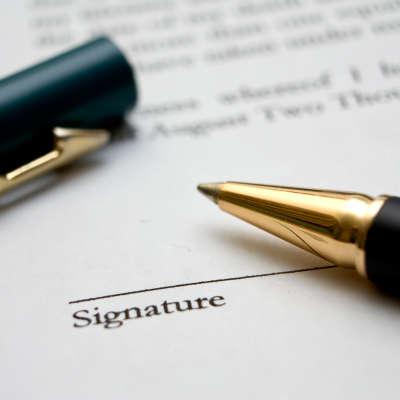
Avoiding Common Pitfalls
May 18, 2015 by ClewettIt was late on a Friday afternoon before a long weekend when I took a phone call from a distressed client. My client had just taken delivery of his new caravan. The delivery was made by the freight company. The family was all packed up for a weekend away. And then my client saw the hole ripped into the roof his newly acquired pride and joy.
I asked what I thought were some pretty reasonable questions like did he have a contract, had he paid for the van, who put the hole there, was he insured, who arranged the freight, who carried the risk of any damage? It was all a bit of a disaster, he had bought the van unseen on the internet and hadn’t even inspected the van or had someone do it for him. All the lovely pictures on the website avoided the ceiling. My client had no way of knowing whether the hole had been there all the time or whether it happened in transit.
There was a contract but not much of one. It was not much to work with. It made me ponder about what you need in a contract. Writing is good evidence of the contract. Writing also makes people think about what is important for their contract.
All contracts are enforceable if they are properly made. You just need a couple of parties, one of whom makes the other an offer. The offer must be accepted and the parties should agree on the consideration, the price or what each party will do for the other. And it should be the intention of the parties to create that legal relationship between them, buyer and seller, landlord and tenant, supplier and customer, whatever the parties may be.
Sometimes there needs to be writing and, in some cases it needs to be signed. In many places including Queensland, at least some of the contract must be in writing and signed when it deals with land.
Well, what is important? That will depend upon your contract. What is important to your contract may not be so important to mine. What are the most important bits?
The contract needs to be clear and unambiguous about what are the obligations of the parties. What exactly is the supplier required to do? How and when does the supplier do that. What about the buyer? Obviously the buyer will be required to pay but when and how? And is the buyer required to take delivery or collect the goods, even if they are damaged.
Who carries the risk of damage, the seller, the buyer or the freight company? And should there be insurance?
To me, one of the most important parts in any contract is that which sorts out the problems. What happens when one party doesn’t do what they were meant to do? And this will be different depending on the contract. A landlord wants the premises back if the rent is not paid. A customer wants to cancel orders if the goods supplied are not up to scratch or, perhaps, if the caravan is delivered needing repair.
Procedures for terminating or enforcing the contract should be set out in clear and precise language. That is the same for all of the rest of the contract.
A lot of contracts do not need that level of detail but many do. Ultimately it is a matter to think about your transaction and consider what might go wrong and do you need to cover it in the contract.
You might think that having a written contract helps make it enforceable. That’s true, it helps. An oral contract is generally enforceable but often there is differing evidence of what was said. That is why writing is better. In most cases though, the contract does not need to be written at all.
The trick is to get all the terms agreed and the best way to do that is in writing. It doesn’t matter what your deal is, the principles are still the same. A well written contract will help seal the deal and make it watertight, which is more than can be said about my client’s caravan.
More Information
If you need assistance in putting your agreement together, please give us a call.
Glen McCracken
Phone: 07 4639 0307
Email: gmccracken@cp484.ezyreg.com
